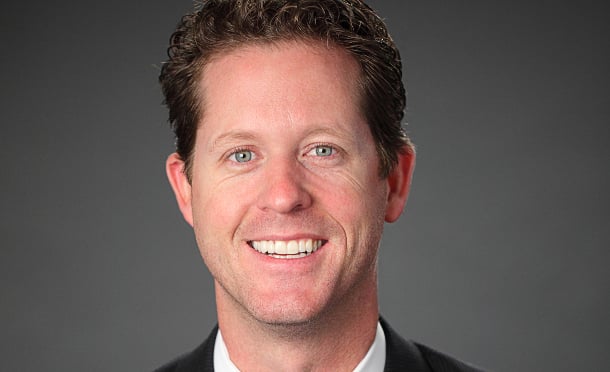 Bridge: “The short answer: for the next three years plus, we see a very bullish CRE market.”
Bridge: “The short answer: for the next three years plus, we see a very bullish CRE market.”
IRVINE, CA—While the practice of renters doubling up in apartments was common during the recession, it’s happening once more as tenants face rising rental rates, a scarcity of apartments and the desire to live in markets where they can’t afford to buy, Marcus & Millichap’s first VP of investments Mark Bridge tells GlobeSt.com. We spoke with Bridge about the effects of the Trump era on commercial real estate and other trends he is noticing in the Orange County CRE market.
GlobeSt.com: What do you believe the overall effect of the Trump era will be on commercial real estate?
Bridge: Marcus & Millichap’s CEO Hessam Nadji has said—and I agree with him—that basically, we see inflation, interest rates rising, the stock market increasing, wage growth rising and business deregulation and taxes coming down, all of which is going to be good for the economy and income and rent growth. Rent growth, interest-rate growth and price growth will kind of offset each other. The short answer: for the next three years plus, we see a very bullish CRE market.
GlobeSt.com: How will this manifest itself in the Orange County market?
Bridge: Orange County has one of the higher wage-to-rent ratios. People’s rents are a higher portion of their income than in a lot of other areas of the country. They might have to double up on occupancy, putting more people in a unit, but rents are going to continue to go up in Orange County, Last year, we had 8% multifamily growth.
GlobeSt.com: What other trends are you noticing in the Orange County CRE market?
Bridge: Inventory is low, and buildings sell extremely fast. We had a 27-unit in Buena Park and another property that both sold in less than a week, and the buyers are bold—they came in with $200,000, nonrefundable upon signing the contract before interior inspection, before they got a hold of the books, etc. We’ve had low inventory for the past few years, and as properties come up, there are tenfold as many buyers as those willing to sell their buildings. There are pages of buyers looking to buy—the tough part is finding inventory for sale. The transaction velocity has been pretty good for agents, too, since prices are high and people are not pulling back. I see a lot of 1031 exchanges. The Baby-Boomer generation is selling management-intensive apartments and buying coupon-clipper, single-tenant net-lease deals. They don’t want to do [high-touch investments] anymore or turn them over to a management company that might not have their best interest in mind, so they’re selling these and buying into single-tenant net-lease CVS/pharmacy and Starbucks.
GlobeSt.com: What do you believe will help alleviate the housing scarcity we have in this region?
Bridge: Building—constructing new apartments, and we actually have quite a bit of this happening in Huntington Beach and Anaheim. They’re building more than they have in the past by a pretty big percentage. Rents are a little bit softer in Huntington Beach because there are a lot of apartments being built, between Bella Terra and the surrounding area. Other than that, people have to double up; a lot of tenants are doing this.
GlobeSt.com: What are the pros and cons of renting an apartment versus owning a home today?
Bridge: There are a lot of pluses and minuses to this. On the plus side for owning versus renting, you’re building equity versus putting money in a landlord’s wallet. A lot of people think real estate market housing prices will increase in future, and interest rates rising and inflation could mean prices rising as well. Taxes and insurance don’t create any value and could be the majority of someone’s rent—you don’t get anything from that. On the other hand, one plus with renting instead of owning a home is location: in Newport Beach, I was renting where I wanted to live versus where I could afford to buy. We’re hearing a lot about the younger generations desiring a lot of amenities in kind of a community living, where they have social events and recreational gathering in a highly amenitized apartment building that could offer them with a spa, a gym and tennis courts. There are also members of the younger generation who have lived through the recession job market and haven’t had the opportunity to make money right away to save up to buy a house and put down a down payment. And, interest rates rising could hinder home buyers as well.

















 Copyright © 2024 ALM Global, LLC. All Rights Reserved.
Copyright © 2024 ALM Global, LLC. All Rights Reserved.